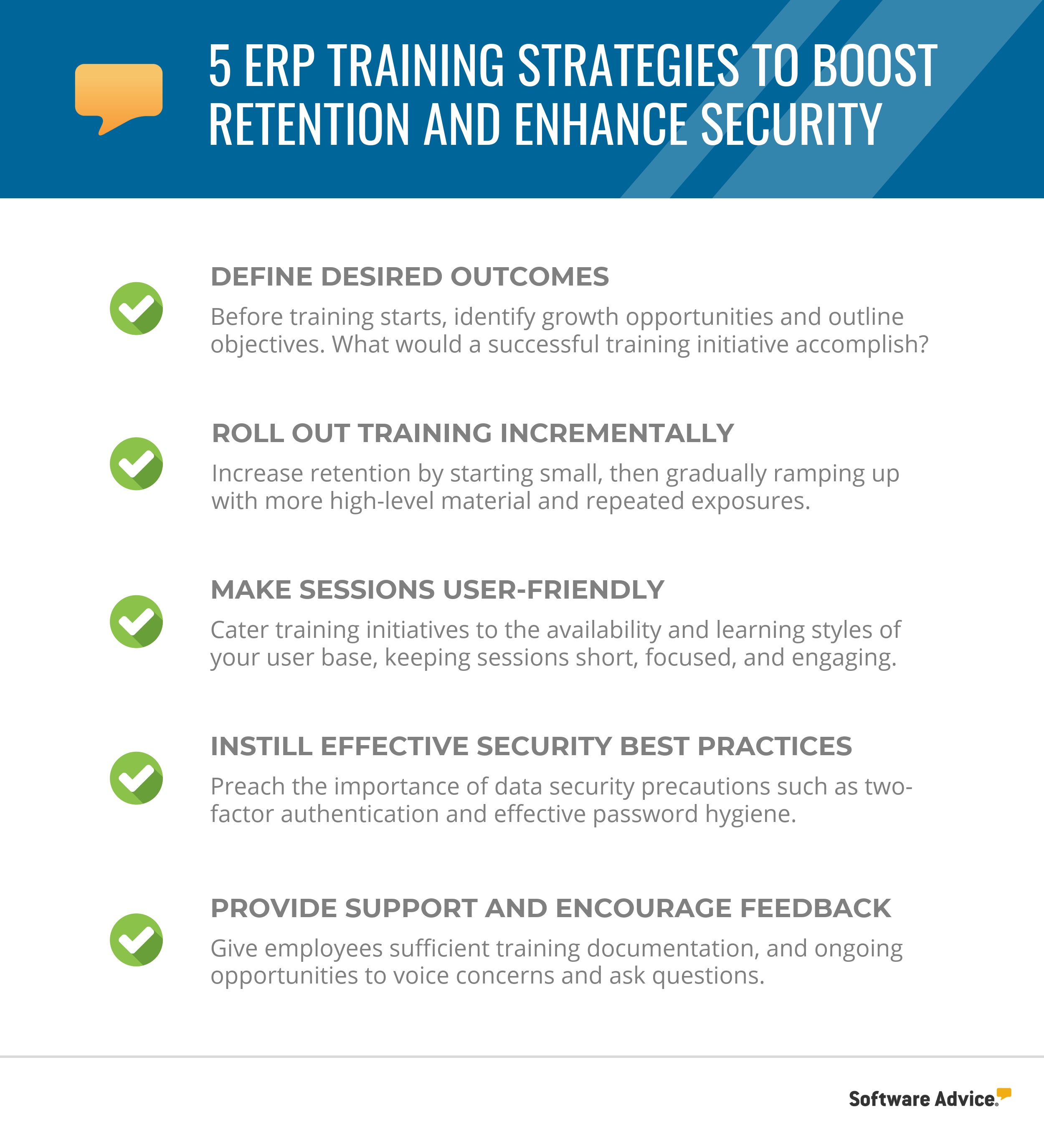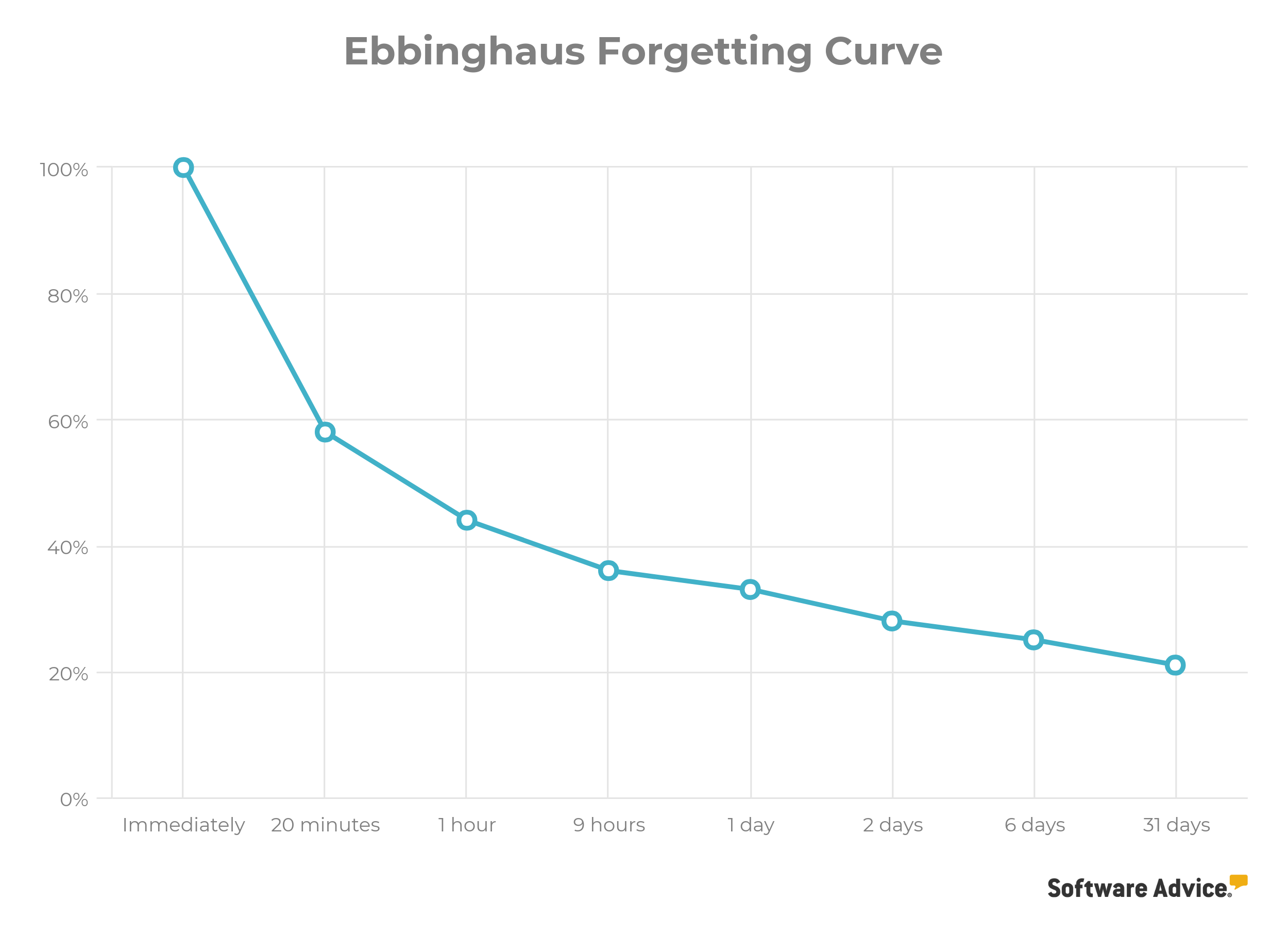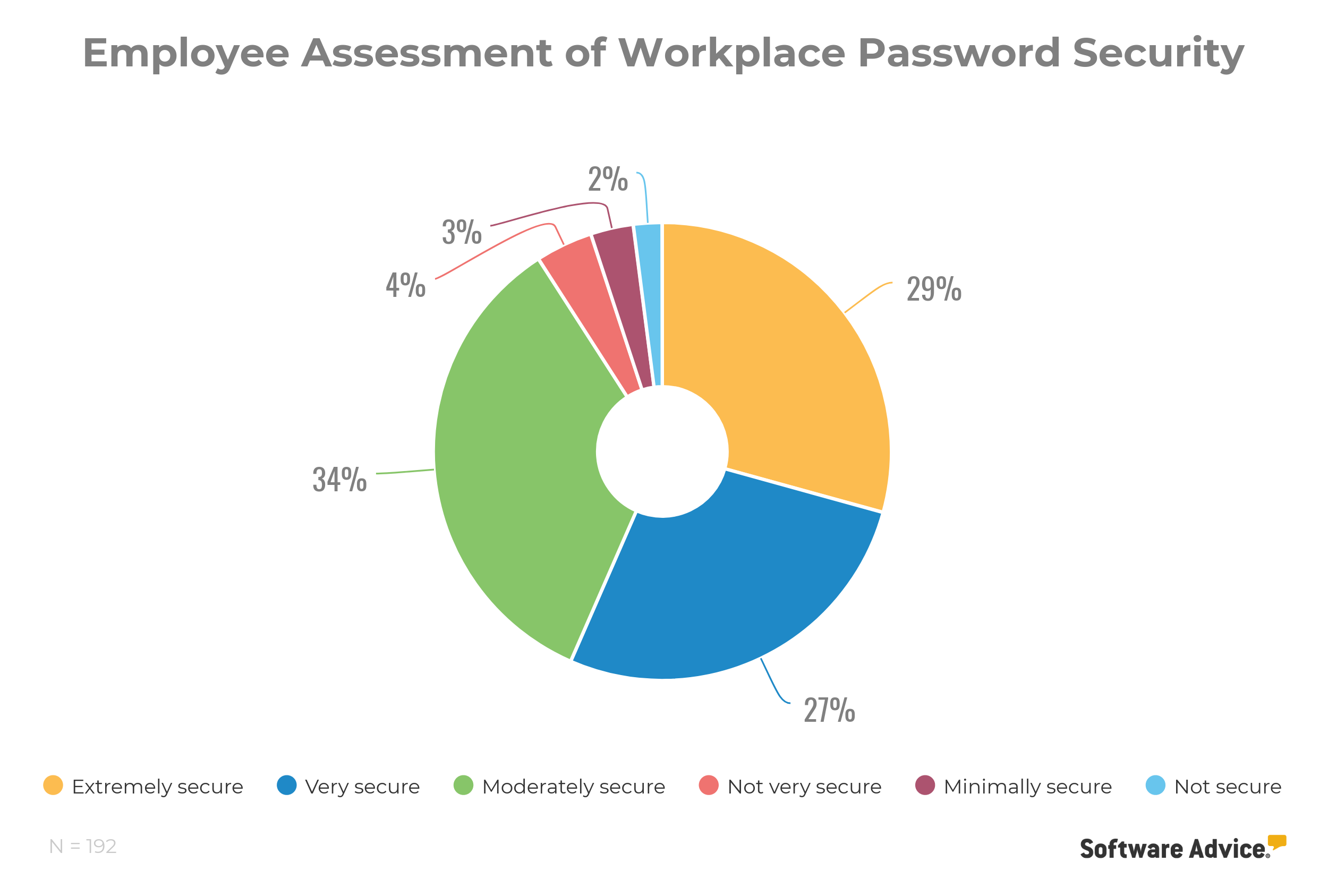5 ERP Training Strategies to Boost Retention and Enhance Security
Some people are born masters of their craft, possessing an innate ability to swing a baseball bat or tickle the ivories without so much as a single lesson.
ERP software is not one of those crafts; only after extensive training can one attain a depth of understanding worthy of the oh-so-coveted Master status.
For businesses, effective ERP training is a reliable solution to increase productivity, save time, and mitigate human error. But as the cost of ERP implementation mounts, training is usually one of the first initiatives on the budgetary chopping block.
We strongly advise against this. In fact, a sweeping ERP training strategy is essential to the success of your deployment—and your business.
 By following these ERP training best practices, your business will avoid common pitfalls like data loss and security breaches, while empowering users to navigate their complex ERP software with confidence.
By following these ERP training best practices, your business will avoid common pitfalls like data loss and security breaches, while empowering users to navigate their complex ERP software with confidence.

Define desired outcomes in the initial planning phase
A measured, strategic approach to ERP training allows businesses to more accurately evaluate the success of the initiative. In other words, the first and arguably most important step in the training process is establishing what you want to accomplish.
This starts with an assessment of your current business performance. By identifying and communicating key metrics and growth opportunities, trainees will better understand their objectives and what is expected of them.
For instance, if your business is falling short of its sales goals, place greater emphasis on your ERP’s customer relationship management (CRM) component; this will ensure that users fully comprehend how the tools at their disposal can help them acquire new business.
But it’d also be wise to survey your workforce and make sure training initiatives address any collective questions or pain points. This will allow you to refine your workflow process in a way that best suits the needs of the individual—and tweak your ERP training strategy accordingly.
If it’s financially viable, consider hiring an ERP training consultant with a proven ability to teach your budding ERP apprentices. A variety of consulting options exist to help acclimate employees to your new ERP system, whether from a third party or the vendor itself.
Roll out training incrementally but conduct it perpetually
Study after study shows that retention increases with repeated exposure. The most famous example is the “forgetting curve,” an experiment by German psychologist Herman Ebbinghaus conducted in 1885. Ebbinghaus found that, with just a single exposure, 80% of material is forgotten in just 30 days.

Counter this phenomenon by gradually rolling out your training initiatives, instead of bombarding your employees and risking information overload. Start small, with exposure to the system and basic navigation several months before implementation, then roll out subsequent training initiatives only after comfort levels are sufficient.
To increase post-implementation retention rates, Gartner recommends “conducting reinforcement training three to four weeks after go-live” and making “ongoing training the norm rather than the exception” (full article available to clients).
Periodic refreshers and specialized tutorials should be part of your ongoing training budget, keeping users equipped with the information they need to carry out their responsibilities efficiently and effectively.
Make sessions user-friendly and geared toward individual roles
Whenever feasible, ERP training initiatives should cater to the availability and learning styles of your user base:
Web-based sessions give employees with inflexible work schedules the freedom to learn at their own convenience.
In-person workshops, meanwhile, are more likely to engage visual and kinesthetic learners.
Offering a mix of web-based and in-person training is the best way to make sure your employees connect with and retain the presented information.
Similarly, sessions should be tailored to individual roles as much as possible.
For instance, don’t waste time and money forcing accountants to learn the ins and outs of an ERP’s supply chain component; there’s simply no need to train someone in something they’ll never need to do. Instead, offer role-based workshops for different departments, with emphasis on the modules they will use most frequently.
But if there’s one universal rule of thumb for ERP training, it’s this: Sessions need to be short and sweet.
The longer they are, the more bogged down they get—and the less effective they’ll be. Instead, ease your user base into the complexities of ERP software with periodic and narrowly focused bursts of information.
Instill effective security best practices
The importance of ERP security cannot be overstated. The software is home to highly sensitive business and client data, making it a prime target for hackers and other bad actors who would love to get their grubby little hands on proprietary information.
And in an increasingly mobile environment, where data can be compromised with a single smartphone theft, protecting the crown jewels of your business has never been more relevant.
It’s therefore paramount that your ERP training repeatedly emphasize security best practices—to both new and experienced users. Such precautions include:
Two-factor authentication. As an extra layer of security, two-factor authentication grants system access only to those who verify their identity whether through a personal identification number or answers to secret questions. If your company employs two-factor authentication (and it should), use your ERP training to hammer home its importance.
Password hygiene. ERP passwords should be unique, regularly updated, and include a mix of characters, numbers, and symbols. If you haven’t already, consider investing in identity management software—because some people, believe it or not, still think “letmein” and (sigh) “password” are adequate safeguards. It’s no wonder that a Software Advice survey found that only 56% of employees have “extremely secure” or “very secure” passwords.

Provide ongoing support and feedback opportunities
It’s inevitable: Trainees will have questions. And—as long as you welcome and are able to answer them—that’s a good thing, because it means they’re engaged. So be sure to provide a forum for employees to raise any uncertainties or concerns they have, whether through an informal Q&A at the end of each session or an anonymous internal feedback portal.
A good way to nip any potential questions in the bud is to provide trainees with comprehensive documentation, including recording and uploading each session, which they can continually reference throughout the training process. Should there be turnover in the training staff, this will keep the process consistent and running smoothly.
Next steps: all aboard the ERP training train
Remember, there’s no one-size-fits-all approach to ERP training. Your business is unique, as are the needs and skill sets of your workforce. At the very least, though, the best practices laid out in this article should keep your ERP training on a track to prosperity.
So, what can you do right now to get that train rolling? Here’s what:
Make ERP training a priority (if it isn’t already). I said it above, but it bears repeating: Reducing or eliminating your ERP training budget is a bad idea. In fact, training is arguably the foremost factor in the success of your ERP deployment. Convey this to business leaders and management. Shout it from the rooftops if that’s what it takes—just make sure it’s a priority and that everyone is on the same page.
Consult with your vendor to devise a training strategy. ERP vendors know their software better than anyone (they made it, after all), and possess the knowledge and resources to help your business develop its ideal training strategy. In fact, many vendors are more than willing to conduct the training themselves; just pick up the phone or shoot your rep an email to nail down the specifics.
Find the right ERP solution for your business. If you’re in the market for an ERP, or still on the fence about it, check out our ERP software page, complete with a buyer’s guide and user reviews for more than 160 of the top products in the market. If you’d rather speak with a real, live person, give one of our friendly software advisors a call at (855) 998-8505. Our 15-minute phone consultations are free of charge, and can help you find the perfect ERP solution to help your business thrive.